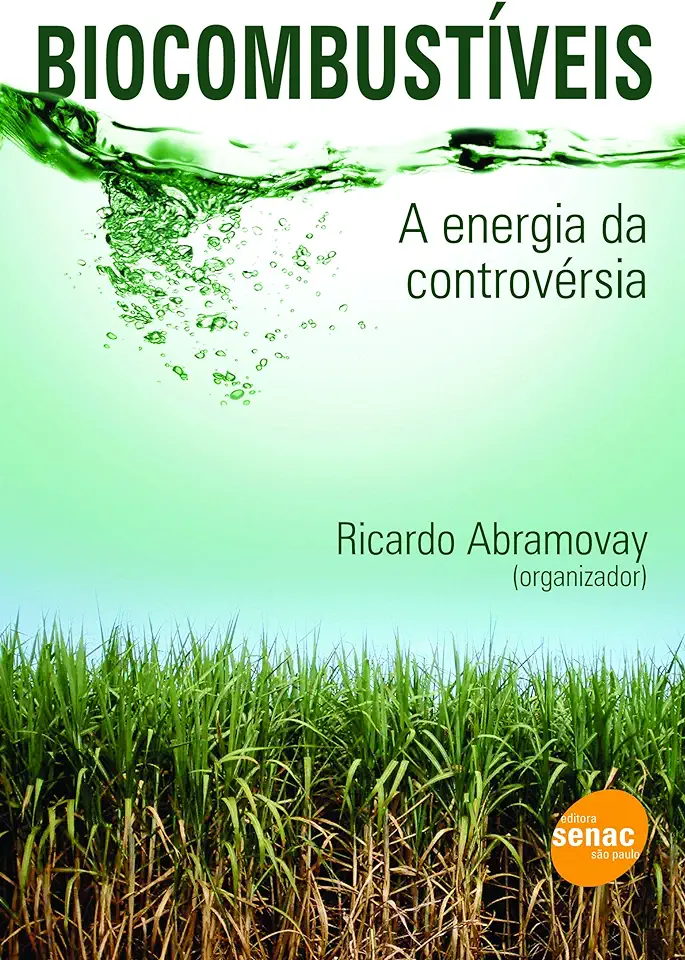
Biofuels - the Energy of Controversy - Ricardo Abramovay
Biofuels: The Energy of Controversy
Introduction
In his book "Biofuels: The Energy of Controversy," Ricardo Abramovay delves into the complex and often contentious world of biofuels, offering a comprehensive analysis of their potential benefits and drawbacks. Abramovay argues that while biofuels have the potential to reduce greenhouse gas emissions and provide a renewable source of energy, their production and use also raise a number of environmental, social, and economic concerns.
Biofuels: A Brief Overview
Biofuels are liquid fuels produced from biomass, which is organic matter derived from plants and animals. The most common biofuels are ethanol, produced from sugarcane or corn, and biodiesel, produced from vegetable oils or animal fats. Biofuels can be used to power vehicles, generate electricity, or heat homes and businesses.
The Promise of Biofuels
Biofuels have been hailed as a promising alternative to fossil fuels due to their potential to reduce greenhouse gas emissions and provide a renewable source of energy. By replacing fossil fuels with biofuels, we can reduce our dependence on non-renewable resources and mitigate the environmental impacts associated with their use, such as air pollution and climate change.
The Controversy Surrounding Biofuels
Despite their potential benefits, biofuels have also been the subject of intense controversy. Critics argue that the production of biofuels can lead to deforestation, soil erosion, water pollution, and increased food prices. Additionally, there are concerns about the energy balance of biofuels, as the energy required to produce them can sometimes exceed the energy they provide.
Abramovay's Analysis
In "Biofuels: The Energy of Controversy," Abramovay provides a balanced and nuanced analysis of the biofuels debate. He acknowledges the potential benefits of biofuels but also raises important concerns about their environmental, social, and economic impacts. Abramovay argues that the development of biofuels must be carefully managed to avoid these negative consequences.
Key Findings
Abramovay's research leads him to several key findings regarding biofuels:
- Biofuels have the potential to reduce greenhouse gas emissions and provide a renewable source of energy, but their production and use also raise a number of environmental, social, and economic concerns.
- The environmental impacts of biofuels depend on a variety of factors, including the feedstock used, the production process, and the location of production.
- The social impacts of biofuels can include displacement of local communities, increased food prices, and labor exploitation.
- The economic impacts of biofuels can include job creation, increased agricultural productivity, and reduced dependence on imported oil.
Conclusion
In "Biofuels: The Energy of Controversy," Ricardo Abramovay provides a comprehensive and thought-provoking analysis of the complex issues surrounding biofuels. He argues that while biofuels have the potential to be a sustainable and environmentally friendly source of energy, their development must be carefully managed to avoid negative consequences. Abramovay's book is a valuable resource for anyone interested in understanding the biofuels debate and making informed decisions about the future of energy.
Call to Action
If you are interested in learning more about biofuels and the controversy surrounding them, I highly recommend reading "Biofuels: The Energy of Controversy" by Ricardo Abramovay. This book provides a wealth of information and insights that will help you understand the complex issues involved in the biofuels debate and make informed decisions about the future of energy.
Enjoyed the summary? Discover all the details and take your reading to the next level — [click here to view the book on Amazon!]